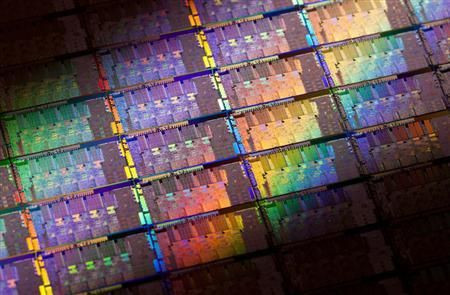AMD Sues Former Employees Over Theft Of 100,000 Documents Allegedly Given To Nvidia
Company alleged four former employees "transferred to external storage devices trade secret files and information."

The rivalry between prominent computer chipmakers Advanced Micro Devices (NYSE: AMD) and Nvidia (Nasdaq: NVDA) reached a new high this week. AMD filed an official complaint in the U.S. District Court of Massachusetts this week accusing four of its former executives of stealing more than 100,000 files of trade secrets before leaving for positions at Nvidia, where AMD alleged they violated "no-solicitation of employees" promises to AMD.
The lawsuit accuses former vice president Robert Feldstein and three managers -- Manoo Desai, Richard Hagen and Nicolas Kociuk -- of violating their contracts with the Sunnyvale, Calif.-based company along with state and federal laws. All four of the defendants worked at an AMD research and development facility in Boxborough, Mass. Of the four, Feldstein, Desai and Hagen work for Nvidia already, with Kociuk scheduled to join the company soon.
In addition to the complaint, AMD also filed a temporary restraining order, which was granted by the court this week. According to the order, the four former employees must preserve any computers and copies of AMD documents they currently have in their possession and avoid disclosing any confidential AMD information to Nvidia or the general public. It also prohibits them from recruiting any additional AMD employees.
Feldstein left AMD in 2012 after helping the company broker major deals with the big three video game console developers -- Sony (NYSE: SNE), Nintendo (PINK: NTDOY) and Microsoft (Nasdaq: MSFT) -- to ensure that their next-generation consoles will all use AMD hardware exclusively. As the Wall Street Journal reported at the time of his original departure, the deals to secure all three of the major next-generation consoles was a big win for AMD over Nvidia, since the two companies are industry leaders and chief rivals in providing powerhouse graphics processing unit tech for gaming hardware.
AMD’s complaint said it “uncovered evidence” that Feldstein and the other three "transferred to external storage devices trade secret files and information in the days prior to their leaving AMD to work for Nvidia."
The complaint noted that the full “volume of materials that these three defendants collectively transferred to storage devices” remains “unaccounted for,” but said that it “exceeds 100,000 electronic files." AMD also said the files "include obviously confidential, proprietary, and/or trade secret materials relating to developing technology and/or highly confidential business strategy."
The complaint alleged that "three highly confidential files -- two licensing agreements with significant customers, and a document outlining proposed strategies to AMD's strategic licensing -- were transferred." Their acquisition by Nvidia would then give AMD’s rival “an unfair advantage if improperly used or disclosed.”
AMD accused at least one of the managers of running “several Internet searches about how to copy and/or delete large numbers of documents.”
A spokesperson for the company told ZDNet, "We believe the facts are clearly outlined in our pleadings and are supported by forensic evidence," and added that the company "will always take action to aggressively protect its confidential, proprietary and trade secret information."
Nvidia shares rose nearly a percentage point on Wednesday, rising $0.11 to $12.09 by the end of trading. AMD jumped 1.49 percent to $2.72 per share during Wednesday trading.
© Copyright IBTimes 2024. All rights reserved.






















